
Automated 360-degree goniophotography seems to have simplified screening and diagnosis of glaucoma.

Automated 360-degree goniophotography seems to have simplified screening and diagnosis of glaucoma.
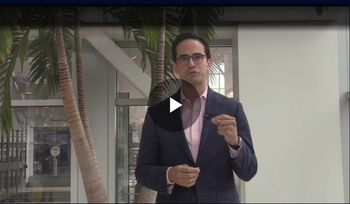
Carlos Quezada Ruiz, MD, senior medical director at Genentech, discusses “Predicting optimal treatment regimen for patients with neovascular age-related macular degeneration using machine learning.”
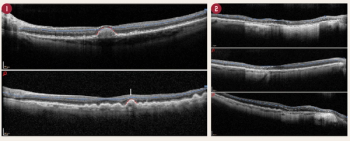
Alterations of the outer retinal layers from age-related macular degeneration (AMD) can interfere with the automated segmentation of the individual retinal layer thicknesses when using macular optical coherence tomography (OCT).

Solutions should address staffing shortages and burnout.

In a patient survey, 66% of respondents said AI plays a large role in their diagnosis and treatment and thought it was important.

TAKE-HOME: This affordable device allows the view through a slit lamp to be shared in real time or recorded, for teaching and reference purposes.

For health care workers, the pandemic has led to increased burnout, concerns about workplace safety, and staffing shortages that threaten not only patient care but also the entire provider ecosystem.

The company is partnering with leading ophthalmology practices focused on improving patient outcomes. OMNY solutions are derived from electronic health record data and provide valuable information on the evolving treatment paradigm for patients with ophthalmic disease, including difficult to obtain insights on the rationale behind treatment decisions, and the impact of social determinants of health on care delivery and outcomes.

As more and more practices embrace dark adaptation testing, AdaptDx technology has become a staple in primary eye care.
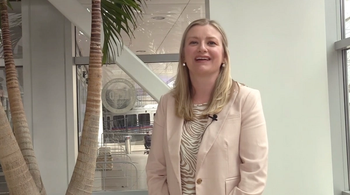
Catching up after ASCRS 2022, Ora's Caitlin Black, senior director and therapeutic area head of medical devices, talks about the next generation of ophthalmic device therapies and diagnostics, clinical trial updates and new innovations that are most exciting for presbyopia treatment.
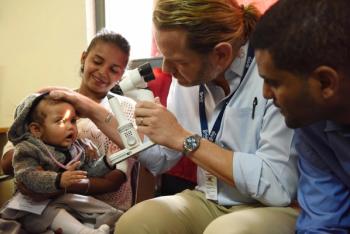
The 10-week Flying Eye Hospital program will offer courses focusing on advanced glaucoma and simulation lectures for residents.

Diana Do, MD, professor of ophthalmology at Stanford's Byers Eye Institute, presents research on a newly developed, novel patient-reported outcome instrument (PRO) for patients who have proliferative diabetic retinopathy and who are undergoing treatment with either intravitreal anti-VEGF therapy, or panretinal photocoagulation.
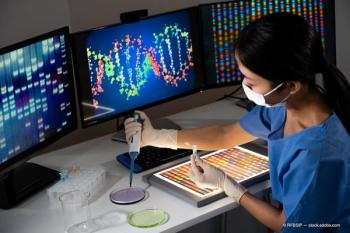
Aurion noted that its first candidate is a cell therapy for the treatment of corneal edema secondary to endothelial dysfunction.
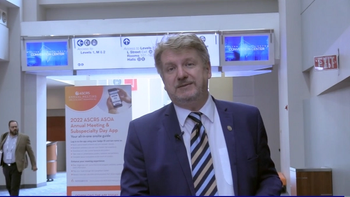
Two year data shows a promising future for the OCD guided, noninvasive technology for glaucoma treatment.

Bath was recognized as the first Black woman physician to receive a medical patent, as well as the first woman to lead a post-graduate training program in ophthalmology. She joins four other inventors as the most recent inductees into the Hall.

Lens thickness and anterior chamber duct values obtained by Lenstar can be improved by SpikeFinder to reduce errors in measurements.

Jonathan Solomon, MD, shares his personal experience using the Beyeonics One exoscope, highlighting what makes this tool stand out.
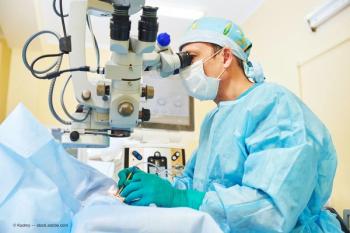
Technical details, communication style key to presbyopia-correcting IOL journey.
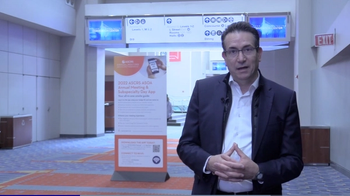
Riad Sherif, MD, CEO of Oculis, gives a company update on clinical trials for products in DME, ocular surgery, and more; plus, growing products in glaucoma treatments, team and financing updates.

Kevin Waltz, a consultant for ViaLase, discusses the company's technology: an image-guided femtosecond laser surgical system for the treatment of glaucoma.

Ophthalmologists have seen a progression in cyclophotocoagulation (CPC), with each generation becoming more doctor and patient friendly. Shan C. Lin, MD, a glaucoma specialist at the Glaucoma Center of San Francisco in California, described the advances in the technology.
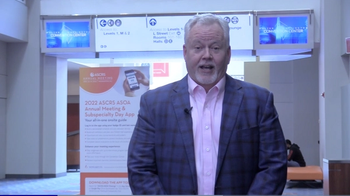
Earlier this year, BioTissue announced the corporate rebrand of its new customer facing entity, including carrying the name over to its surgical business formally known as Amniox Medical. Randy Mansfield, VP of marketing for BioTissue, shares an update at ASCRS 2022.
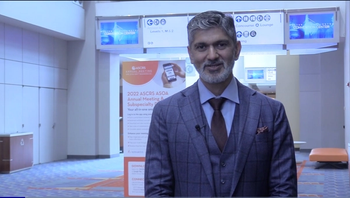
Dr. Sri Ganesh, MBBS, MS, DNB, chairman and managing director of Nethradhama Hospital Pvt. Ltd, discusses his studies on LENSAR and shares his findings.

John Berdahl, MD, discusses the technique and benefit of endothelial cell therapy. An early technology, this therapy method allows for up to 100 treatments out of a single human cornea.

The glaucoma market seems to be in an expansion phase, as evidenced by the explosions in the number of new pharmaceutical and surgical options entering the marketplace. The introduction of new devices is possibly the single most influential factor currently driving the glaucoma market.